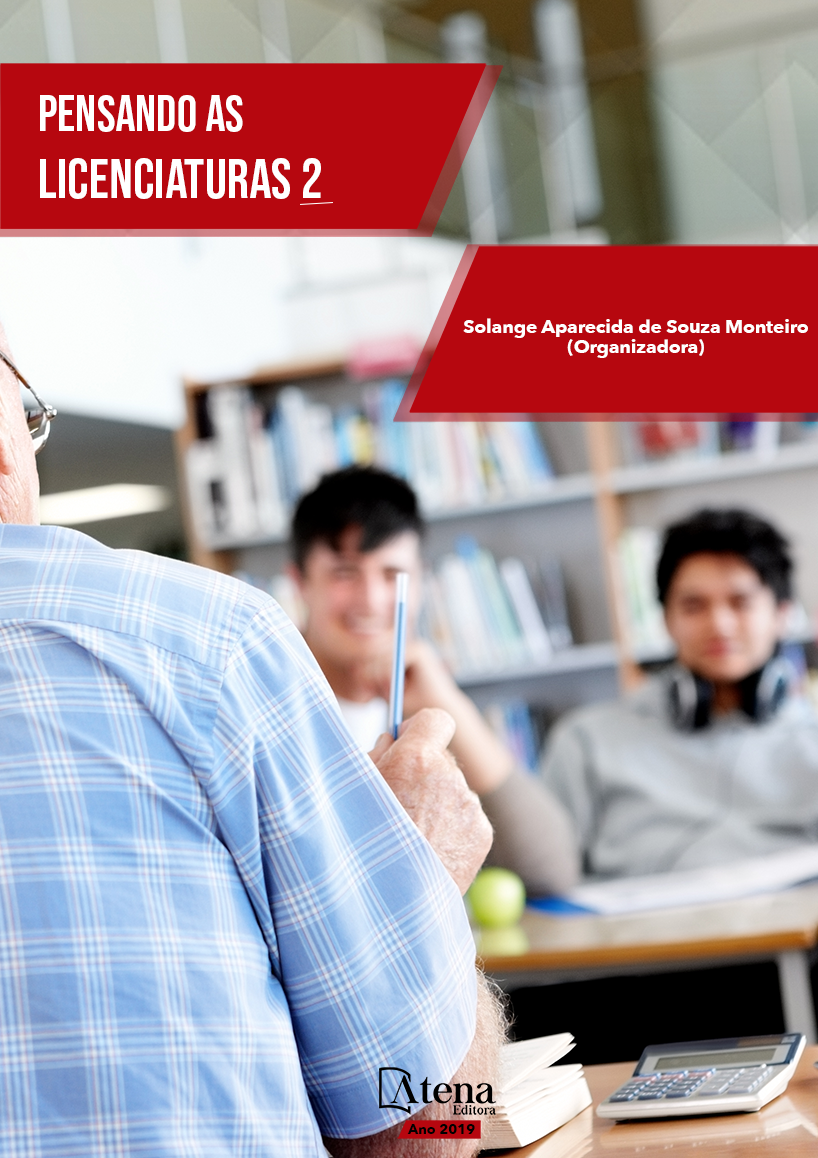
FORMAÇÃO DO EDUCADOR INFANTIL: DESAFIOS E PERSPECTIVAS NA CONTEMPORANEIDADE
O texto é resultado da pesquisa
realizada em uma Faculdade de Educação
na cidade de Boa Vista - Roraima teve
como objetivo investigar a formação de
professores na Educação Infantil no curso
de pedagogia. A pesquisa Quali/Quanti, com
objeto a turma “O”, do 4º semestre do curso
de Pedagogia, composta por 20 acadêmicos.
Abordagem qualitativa (análise documental e
questionário semiestruturado) e quantitativa
(percentuais) estabelecendo um diálogo entre
as abordagens. Para a análise dos dados foi
utilizada a metodologia do Discurso do Sujeito
Coletivo. No que se refere à avaliação do curso,
80% dos acadêmicos o consideraram ter uma
proposta de formação de qualidade, no que
diz respeito à consistência teórico-conceitual,
propiciando conhecimentos e habilidades
necessárias para sua futura profissão. Contudo
o curso sofreu críticas nos seguintes aspectos:
reduzida carga horária à Educação Infantil;
tempo disponibilizado para o estágio (já final
do curso); à falta de contextualização do
ensino; não aproveitamento da experiência dos
alunos, enfoque teórico das aulas; à relação
entre teoria e prática; à desarticulação entre a
formação para a Educação Infantil e para os
anos iniciais do Ensino Fundamental. Como
resultado foi possível contrastar por meio dos
dados coletados que a formação do educador
da Educação Infantil ainda, se constitui como
um “apêndice” do curso de Pedagogia e há
ainda, a falta de experiência dos professores
formadores nesse nível de ensino o que dificulta
uma formação baseado na práxis.
FORMAÇÃO DO EDUCADOR INFANTIL: DESAFIOS E PERSPECTIVAS NA CONTEMPORANEIDADE
-
DOI: 10.22533/at.ed.18319120219
-
Palavras-chave: Pedagogia. Educação Infantil. Formação de Professores.
-
Keywords: Pedagogy, kindergarten, training of teachers
-
Abstract:
This paper is a result of a survey
study realized at Educational Faculty in Boa Vista
city - Roraima state, it aimed at investigating
how the training of teachers in Early Childhood
Education (kindergarten) and initial series of
Elementary Education had happened. The
qualitative and quantitative research method,
the “O” class as an object, from forth semester
of pedagogy course, composed by twenty
academic students. Qualitative instruments
of research (documentary analysis and semistructured interview), a questionnaire as used,
which means a qualitative/quantitative as a
point of converging. It was applied the the
methodology of the Discourse of the Collective
Subject, for data analysis. 80 % of academic
students regard to the course evaluation a
quality training proposal with regards to the
theoretical-conceptual consistency, providing the knowledge and skills necessary for their future. However, the course was criticized
due to the reduced hours in Early Childhood Education subject; the time available during
internship; lack of contextualization of teaching which means the lack of converging
between theory and practice; the non-use of student experience and the theoretical
approach of classes; to the disarticulation between the formation in childhood Education
and the initial years of the Elementary School. As a result, it was possible to diagnose
through the data collected that the training for Early Childhood Education still constitutes
an “appendix” of the Pedagogy course and the lack of experience of the teachers in this
level of education makes difficult a process of formation based on praxis.
-
Número de páginas: 15
- SIMONE RODRIGIUS BATISTA MENDES


